8 Reasons to Learn English in Malta
In recent years, Malta has become one of the most popular destinations in Europe for learning English. Discover the main reasons why thousands of students choose this island every year over more traditional destinations like Ireland or the UK.
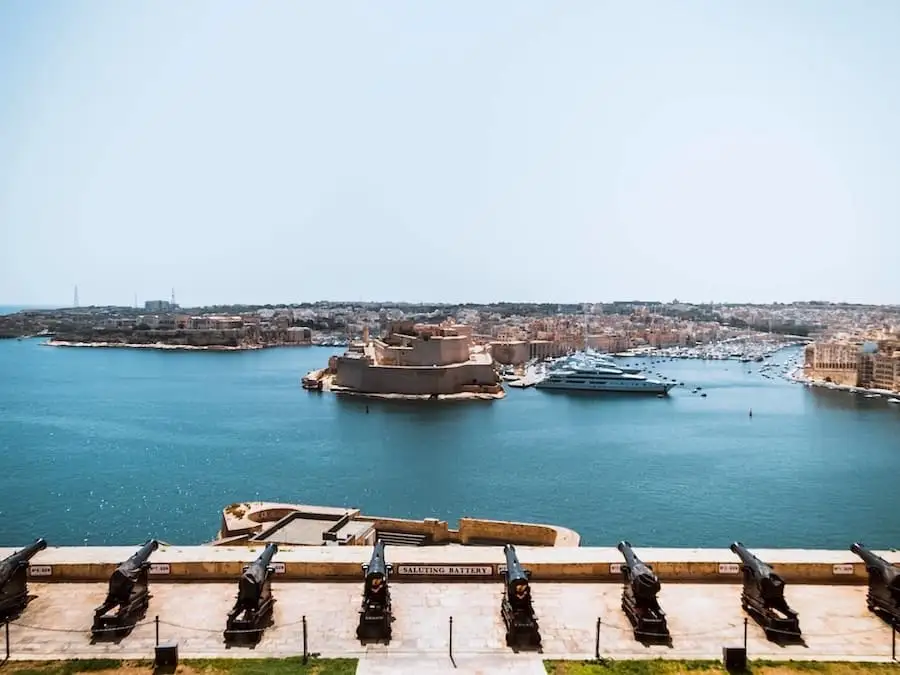
1. An English-Speaking Country in the Heart of the Mediterranean
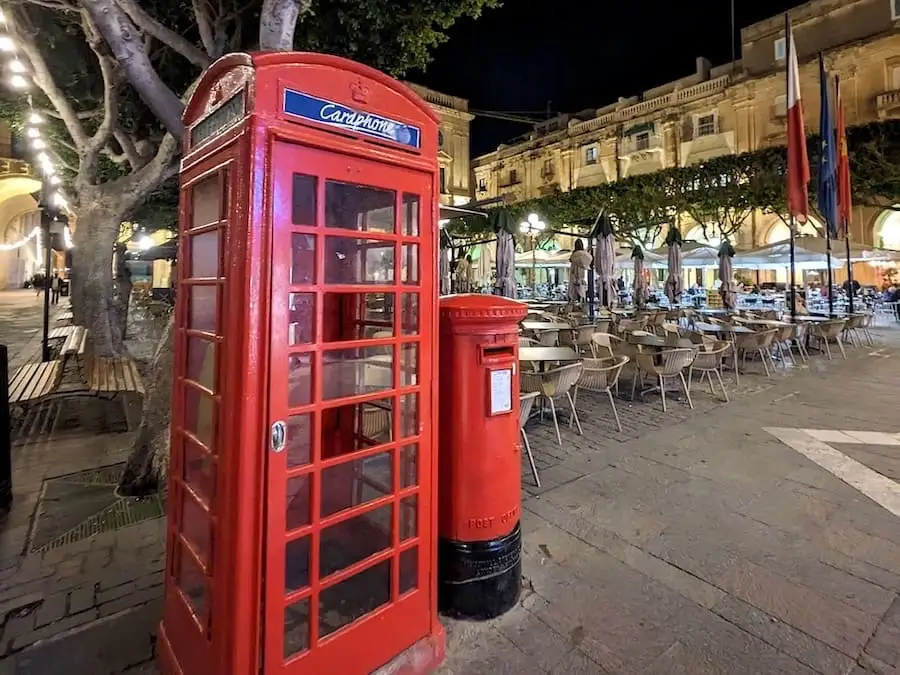
Malta has a unique history. A strategically located archipelago in the heart of the Mediterranean, it has long been sought after and influenced by various civilizations—from the Phoenicians to the British. Malta became an independent state in 1964 after being a British colony from 1814 to 1964. Since then, it has retained English as an official language, alongside Maltese. This makes it one of only three European countries with English as an official language, and the only truly English-speaking country in the Mediterranean (excluding Cyprus).
This makes the archipelago especially attractive for students who want to learn English, and more generally for European tourists. English is used daily in government, education, media, business, and everyday life. Maltese is mainly used in informal or family settings.
Malta’s linguistic environment is ideal for an immersive English-learning experience. The English spoken here is generally neutral and easy to understand, which is helpful for beginners and intermediate learners. Students can improve their skills both in class and through daily conversations with locals, travelers, and fellow students.
2. Sunshine All Year Round

Malta enjoys a much-loved Mediterranean climate with over 300 days of sunshine per year. Winters are mild and summers are hot and dry—ideal conditions for a pleasant stay, whatever the season. Even in winter, temperatures rarely drop below 10°C, creating a truly enjoyable atmosphere. For many students, this climate is a big advantage over colder destinations like Ireland or the UK. Sunshine, natural light, and mild weather boost mood, motivation, and quality of life.
More than just the weather, it’s the relaxed lifestyle it fosters that attracts people to the island. The sunshine creates a calm and stress-free atmosphere across Malta, perfect for studying. This Mediterranean way of life brings a natural balance between learning and leisure. It’s clear in daily life: students are relaxed and open, which encourages interaction and, in turn, language practice. Studying English in Malta feels like a mix between going to school and being on vacation—a fun and natural learning experience.
3. Many High-Quality English Schools

Malta is home to 32 official English schools, meaning institutions with an ELT Council license and recognition by Malta’s educational authorities. There are many schools; while not all are equal, some stand out for the quality of their courses and teachers, meeting the highest international standards.
At the top schools, teachers are native speakers, class sizes are small, and teaching methods are modern and dynamic. These schools often rival institutions in the UK or the US and are far superior to other popular destinations like South Africa or Dubai, where the quality of teaching can be inconsistent.
Maltese schools cater to all learning needs, offering general courses as well as more specialized programs, such as Business English, exam preparation (TOEIC, TOEFL, Cambridge, IELTS), and themed English courses. Most also include integration and social programs to help students practice English in a variety of situations, ensuring a full and enriching learning experience.
4 – Great Value for Money

English courses in Malta offer excellent value for money compared to other destinations. While the cost of living in Malta has risen in recent years, it remains lower than in other English-speaking countries like the UK, Ireland, or the US. Course fees are generally more affordable, and daily expenses (accommodation, food, activities, transport) are budget-friendly. Student housing, whether in shared flats or host families, is competitively priced, making it possible to stay for several weeks on a reasonable budget.
This affordability is especially appealing to students, young professionals, or adults changing careers. Even with a limited budget, you can spend several weeks in Malta, taking English classes and enjoying a meaningful, immersive experience. Most schools offer all-inclusive packages (tuition and accommodation) at attractive rates, especially for long-term stays. And since Malta is part of the European Union, funding programs like Erasmus+ are available at many schools.
5 – A Friendly, International Atmosphere

One of Malta’s greatest strengths is its cultural diversity, seen both in schools and on the island itself—more than 25% of the population is foreign-born. Every year, thousands of students from around the world come to Malta to learn English. This creates a uniquely international atmosphere that encourages cultural exchange. Over 30 nationalities are often represented in language schools. French students naturally end up interacting with learners from across Europe, as well as countries like Brazil, Colombia, Turkey, South Korea, and Japan.
In the classroom, students from all backgrounds learn side by side, enriching discussions and broadening perspectives. This mix of cultures makes the experience even more rewarding and complements the academic side of English learning in Malta. For many, their English trip to Malta becomes a lifelong memory and a life-changing adventure.
6 – Easy to Reach from All Over Europe and the Mediterranean
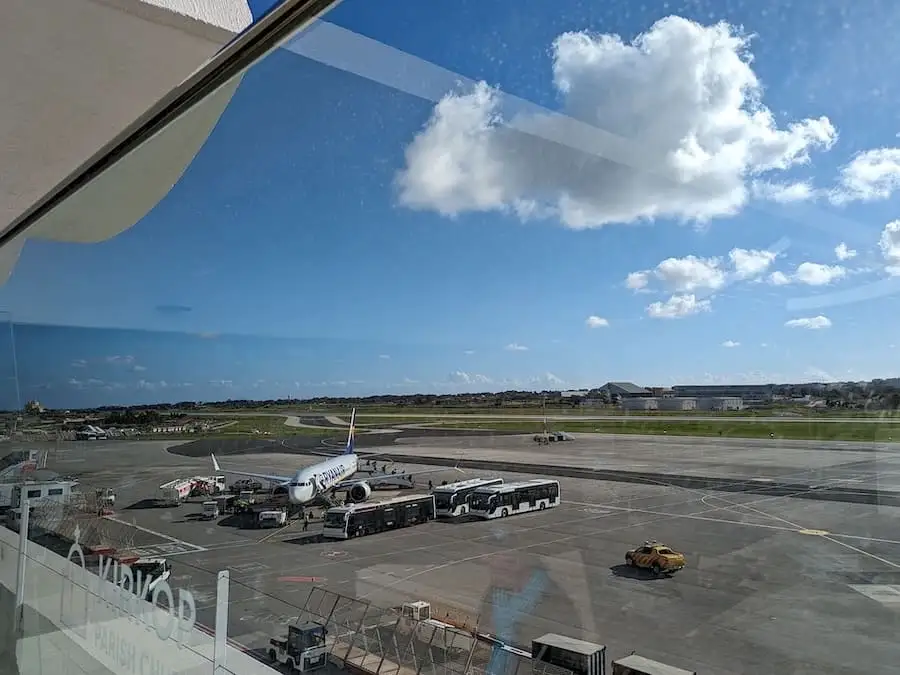
Thanks to its central location in the Mediterranean, Malta is easy to reach. The island has a small international airport in Luqa, with direct flights to over 100 destinations. Many low-cost airlines like Ryanair and EasyJet operate here, offering budget-friendly connections to major cities across Europe and the Mediterranean region. This makes planning your trip easy—even last-minute—whether it’s for a few weeks or several months.
As a member of the EU and the Schengen Area, Malta allows European students to travel there without any special visa or paperwork. Non-EU residents with a residence permit from a member state can also enter Malta visa-free. Additionally, many countries in Latin America and Asia don’t require a visa for stays under 90 days. For those who do, the process is simple and handled through a VFS Global center. This accessibility makes Malta an ideal destination for short- or mid-term English study trips: exotic yet close to home.
7 – Rich Cultural Heritage and Plenty to Do
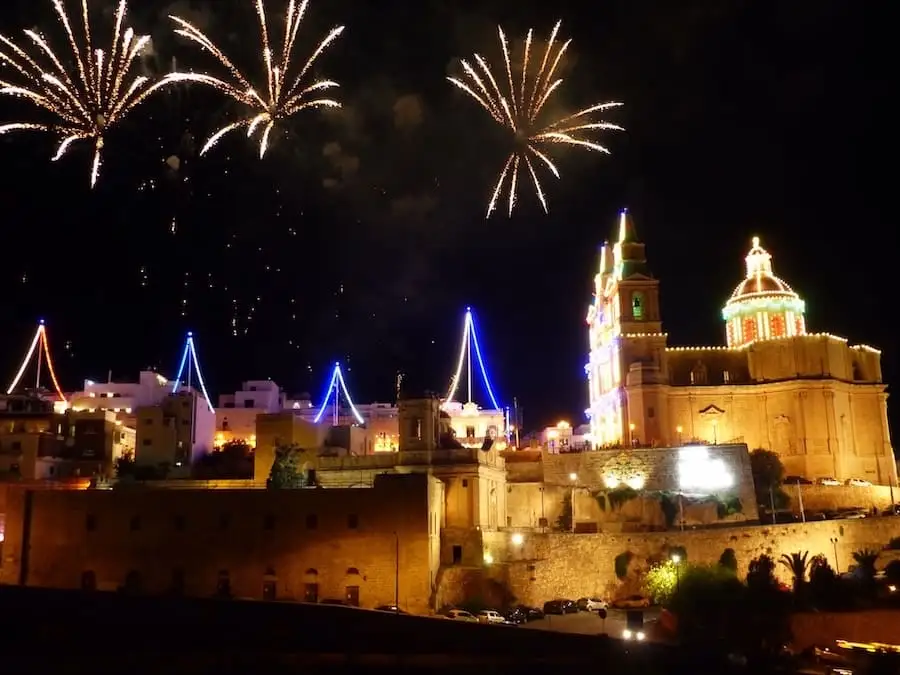
Malta has a remarkable historical heritage for such a small country. From megalithic temples and fortified cities to cathedrals, catacombs, and museums, there’s a lot to explore. The capital, Valletta—a UNESCO World Heritage Site—is an open-air museum in itself.
The island is also famous for its coast. There are many sandy beaches and stunning natural sites like the Blue Lagoon and the Blue Grotto. Perfect for fun student excursions, combining learning and adventure.
Malta is also lively and youthful, with plenty of nightlife options: the bustling Paceville district, festivals, concerts, exhibitions, and events year-round.
With so many chances to socialize and practice English, language trips here are never boring. Whether you’re into history, sports, water activities, architecture, museums, beaches, or nightlife—Malta has something for everyone.
8 – A Safe and Student-Friendly Environment
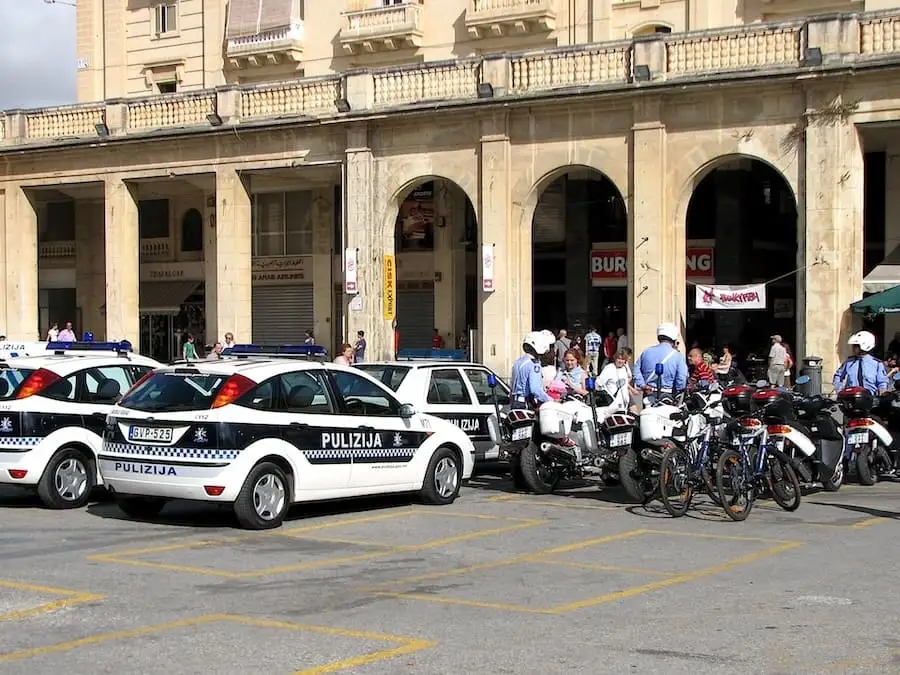
Safety in Malta is high. The country is one of the safest international destinations, with crime levels well below those of many European countries like France, Germany, the UK, or Spain. Malta usually ranks among the world’s top 15 safest places to visit. You can walk around anywhere on the island—regardless of time, gender, or dress—with peace of mind.
That said, it’s not completely crime-free. The nightlife area of Paceville occasionally sees incidents or thefts, but given the number of locals and visitors, these are rare and mostly linked to partying.
Language stays for teens and young learners are also well supervised—especially when organized through one of the island’s major accredited schools.